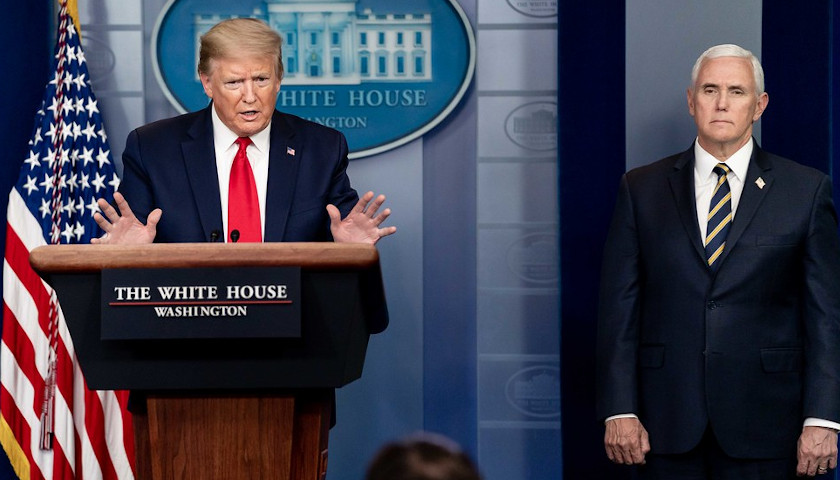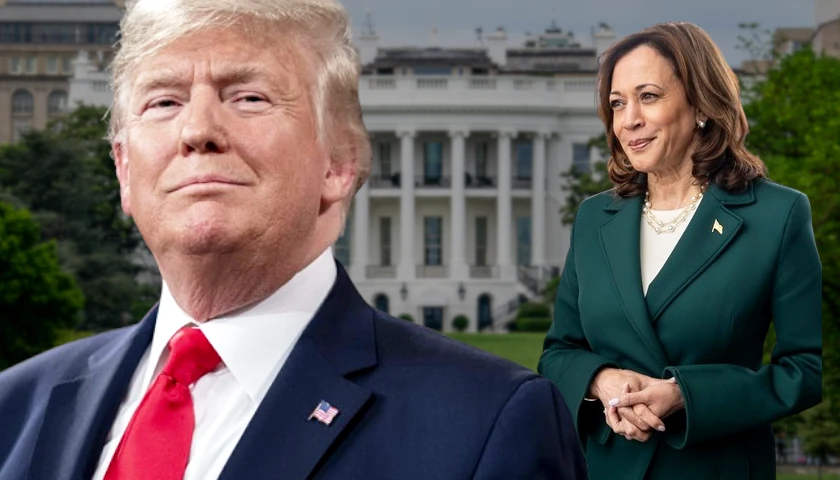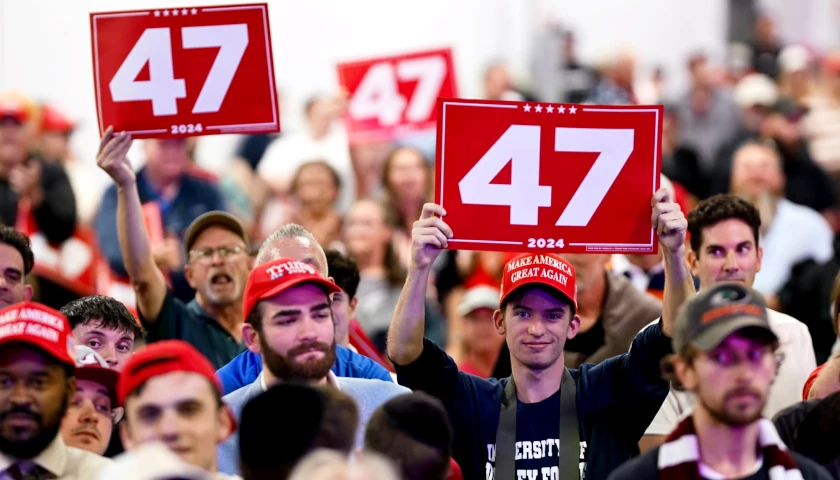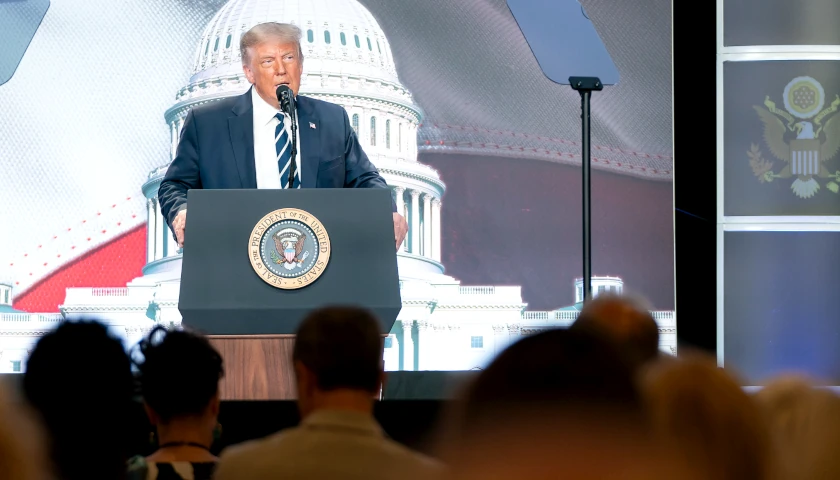by Julie Kelly
The so-called Murray model on COVID-19 issued yet another update on Wednesday, its 11th iteration in less than a month
Even though his apocalyptic projections about massive shortages of hospital beds, intensive care units, and ventilators failed to materialize this month, Dr. Chris Murray, director of the Institute for Health Metrics and Evaluation, keeps upping the ante. It was Murray’s collection of scary graphs that Drs. Anthony Fauci and Deborah Birx presented to the president at the end of March to support their push to extend the “social distancing” guidance until April 30. President Trump acquiesced; that decision effectively shut down the U.S. economy, has confined most Americans to house arrest, and is fueling fear and panic across the land.
After being so wrong, any professional with a sliver of integrity would crawl away in shame. Murray should be offering an apology to the nation for warning of widespread death and misery which, outside of New York City, cannot be found on anything like the scale he predicted. The president should be hauling Murray and his abettors into the White House to demand answers.
But being a scientific modeler means never having to say you’re sorry—see climate science for a lengthy list of examples—so Murray is not only unrepentant, he’s spinning out more imaginary charts.
Republican governors who either never enacted draconian social distancing decrees or are planning to end those measures are on Murray’s latest hit list. Florida and Arizona, whose Republican governors want to liberate their states gradually in a few weeks, should not be permitted to lift social distancing measures until the middle or end of June, Murray says.
The residents of North Dakota will have to wait until after July 4 to celebrate their freedom. Governor Doug Burgum, a Republican, never instituted a stay-at-home order and is preparing plans for businesses to open on May 1 so Murray has pushed back North Dakota’s safe date to July 19. (The state has had 17 COVID-19 fatalities.)
It’s nothing more than a game of scientific darts, which might be entertaining if the catastrophic impact of Murray’s failed model weren’t so clearly coming into view. The Labor Department released another horrific report on unemployment; 4.4 million Americans filed new claims last week, bringing the total number of jobless Americans to more than 26 million in just five weeks. The nation’s unemployment rate now stands at its “highest level of the seasonally adjusted insured unemployment rate in history,” according to the agency. States cannot keep up with the unexpected surge in demand.
Forty percent of Americans now have an immediate family member out of work.
But joblessness is only one gauge of the level of misery Americans are experiencing. Hospitals are laying off staff and sustaining huge financial losses since the healthcare system is open to coronavirus patients only.
A devastating article in the New York Times this week detailed how cancer sufferers are not getting treatment and other life-saving procedures such as brain surgery and organ transplants are being delayed. “Many hospitals have postponed surgery for breast tumors, an unsettling decision for women eager to have the cancer removed,” the Times reported. “Nearly one in four cancer patients reported delays in their care because of the pandemic, including access to in-person appointments, imaging, surgery and other services.”
The nation’s food supply chain is facing unprecedented strain. Farmers are plowing under their fields as food demand for restaurants and schools disappears. Meat shortages are imminent as packing plants shutter and ranchers have nowhere to store beef, pork, and chicken.
Domestic violence is on the rise in several states. Some regions are reporting a spike in calls to suicide prevention hotlines. The long-term effects of house arrest could be devastating. “Prolonged social isolation takes physical and psychological tolls that are well-documented,” a psychologist told the Wall Street Journal this week. “Numerous studies link isolation and loneliness to depression, dementia, heart attacks and strokes. It shortens lives.”
The country has been thrown into an unforeseen and immediate crisis the likes of which we have never seen in American history. There was no warning and no way to prepare; we are in a state of shock that the collective life we led just two months ago is completely and heartbreakingly gone for the foreseeable future.
That’s why it’s time for President Trump to speak to the trauma the nation is enduring, and not just continue the same drumbeat about the “invisible enemy” each day from the White House press room.
The daily briefings featuring the Coronavirus Task Force have become repetitive. Trump’s jiujitsu with the hostile, childish, and hysteria-inducing White House press corps might entertain some of his followers, and undoubtedly it amuses the president himself, but does little to ease Americans’ rising anxiety about the future.
Fauci and Birx, aside from misleading the president with the disastrous Murray models, don’t have much new to offer. Their updates should be short and weekly, not daily, since the health crisis shows major signs of abating.
The president should now pivot to focusing primarily on how to recover both the economy and the spirit of the American people. He needs to speak directly to our fears. He must give cover to governors who have every reason to bring life back to normal in their states rather than listening to the same small chorus of “experts” who have misled him. (Commending New York governor Andrew Cuomo while openly criticizing Georgia governor Brian Kemp isn’t a great idea, either.)
He needs to get his economic team before the public every day to explain how and when we can start getting back to business as usual—and in days, not weeks or months. Most Americans don’t want more government hand-outs or debt-inducing programs. We want to protect the vulnerable, strengthen our health care capacity, and move on before the damage is too great to repair.
Trump performs best when he gives voice to the inner worries of Americans that others are too timid to express. COVID-19 is deadly and scary but Trump promised Americans the cure wouldn’t be worse than the disease. We are now at the point where we need to hear his plan to make good on that promise—and the president must change course accordingly.
– – –
Julie Kelly is a political commentator and senior contributor to American Greatness.




